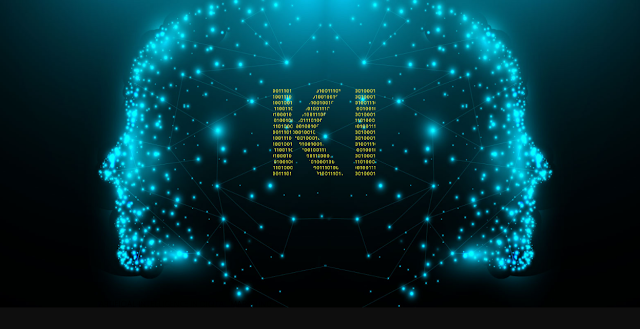EXPLANATION OF ARTIFICIAL INTELLIGENCE IN DIGITAL MARKETING
Artificial intelligence - curse or blessing?
Tech Kiwari - When we talk about artificial intelligence (AI), there is still some fear of contact. This is partly because there is still no universally accepted definition, it is not yet tangible enough for many and arouses a great deal of skepticism in some.
The GABLER Wirtschaftslexikon defines AI as follows: Research into "intelligent" problem-solving behavior and the creation of "intelligent" computer systems. Artificial intelligence deals with methods that enable a computer to solve tasks that, if solved by humans, require intelligence.[1]
AI is now based on the processing of large amounts of data (big data). In this context, neural networks are used and self-learning systems (machine learning) are developed.
Artificial intelligence has already arrived in marketing. The study "Artificial Intelligence: The Future of Marketing, SRH study with 208 marketing managers" [2] shows six types of marketing managers. Each of them faces the AI differently. They differ significantly from the other types in the criteria surveyed.
Artificial Intelligence Manager Types
All bullet points presented are significant differences from other 5 segments
Source: Study: AI - The Future of Marketing, 2018
Based on the survey of 204 marketing managers in the study, it came out that the types of skeptics and opportunists are represented most frequently among managers (27% each).
Areas of application AI in marketing
In the study "AI - The Future of Marketing", 93% of marketing managers attest that artificial intelligence is of great importance for their marketing tasks in the near future. Which areas of application can therefore be important for marketers? We present 10 of these options below.
(1) Digital voice assistants (e.g. Alexa, Siri, Google Assistant) are constant companions and are very popular. It is important for you to optimize your products and services for voice search. Your to-do's are therefore: the best possible mobile view of your website, optimize the regional search for local reference (e.g. on Google Maps), short loading times for your content, thumb-friendly all buttons, structured and understandable content design, an FAQ page.
(2) When evaluating large amounts of data (big data analytics), marketing managers deal with the analysis and segmentation of customer data. AI can support the creation of special reports in the future. These should then form the basis for your targeted marketing campaigns.
(3) There are target groups that act again and again in the same way, e.g. on your homepage or in the web shop. AI or pattern recognition in customer usage behavior is used to recognize this behavior. The resulting reports provide marketing with a basis for making decisions about further marketing activities in order to address meaningful target groups.
(4) With AI, you can classify websites and advertising content according to relevance, where which content should appear or not. In addition, the technology makes it possible to draw conclusions about the effect of the advertising content (keyword A/B testing).
(5) With the automated control of marketing campaigns, your campaigns are automatically controlled, optimized and evaluated in real time. It is then up to you whether you control your campaigns manually or automatically thanks to AI. (Keywords real-time bidding, programmatic advertising, search advertising)
More possible uses with AI
(6) In the logical conclusion for new customer acquisition, data from your converted new customers is analyzed using AI. The data patterns then available allow conclusions to be drawn to identify new potential target groups that have not previously been your focus.
(7) Hyper targeting is the personalized automation of advertising and its adaptation to your respective user thanks to AI. Your potential customers are only shown relevant content. This requires that you analyze the user data for a corresponding algorithm. You can then see which buying phase your customers are in and which advertising media were most effective here. The algorithm remembers this and educates itself independently.
(8) Your chatbots use artificial intelligence and learned algorithms with the most relevant data that the chatbot needs to know. The chatbot is used in customer service or in social networks. You can have simple customer inquiries answered quickly - more difficult topics are then usually answered by you personally. But the chatbot is always learning.
(9) Amazon and Netflix show how behavior-based predictions work. AI is able to predict customer behavior for a specific point in time - and reliably! This puts you in the advantageous position of automatically suggesting products to your customers.
(10) Personalized content/ content creation via algorithm does not mean that you will no longer need to write texts yourself in the future. But if texts are based on certain rules, AI helps to create content. Extensive texts are automatically classified, compressed and distributed to target groups with individual wording. Your customers should have the feeling that they are being addressed individually.
Don't be afraid of artificial intelligence
The areas of application presented above clearly show that AI can only work with data that is analyzed and used accordingly. This data is usually available to the companies. The real challenge, however, is that companies do not have the appropriate resources. You have difficulties evaluating the existing data in order to address user groups individually. AI can help here if you allow it and open yourself up to the topic. A CRM system with the appropriate options can also be helpful here.

Post a Comment